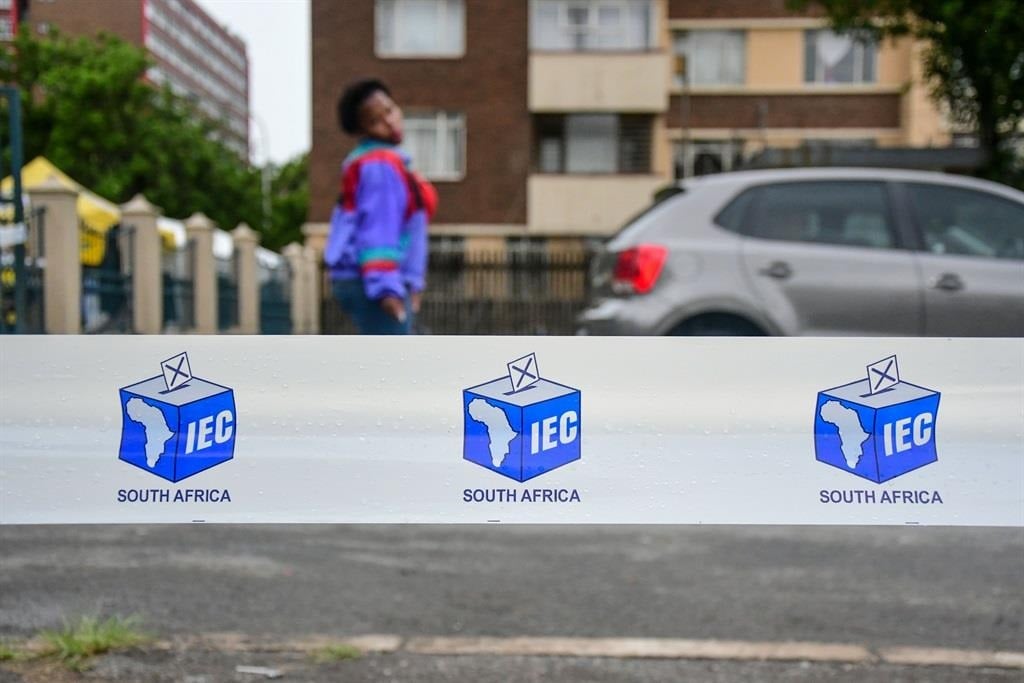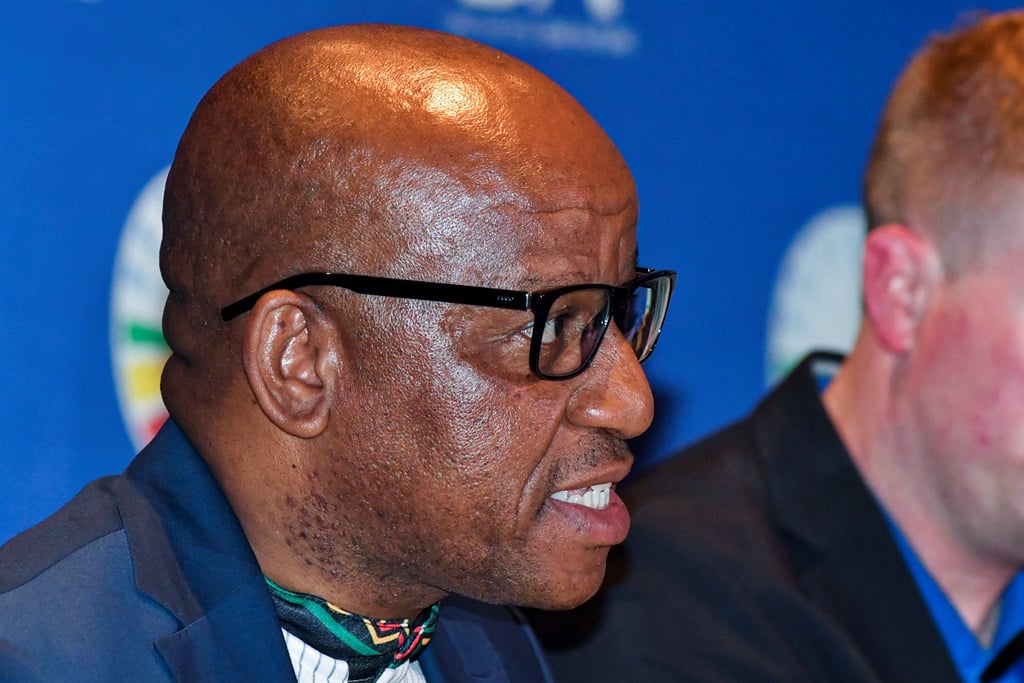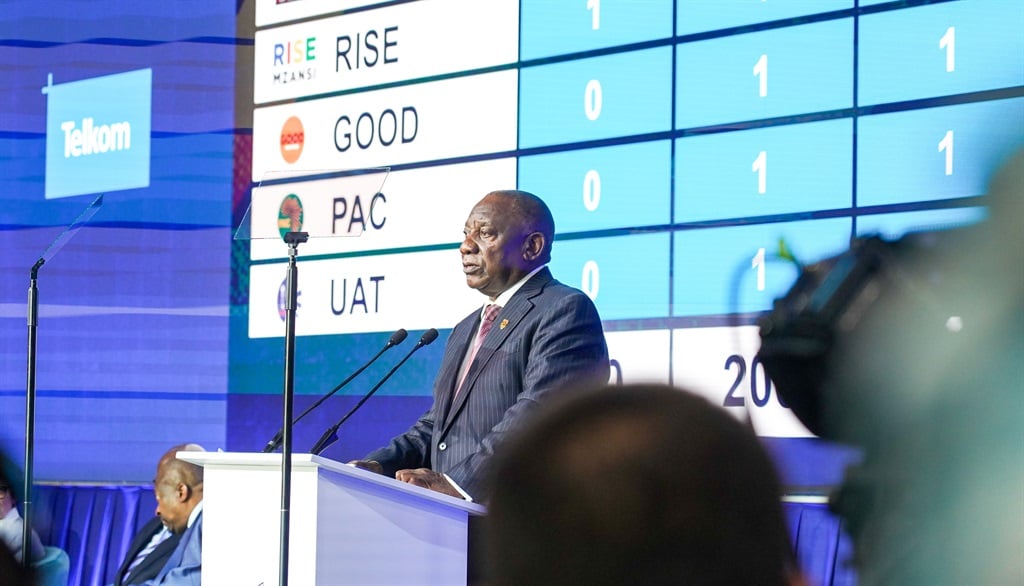
- South Africans are voting on Wednesday.
- A tracking poll shows a slight uptick for the ANC in recent days, while the DA saw a dip, and the EFF has been tracking consistently around the 10% mark.
- The election results could be very different, as previously undecided voters could have a big say on the outcome.
The only poll that matters is on Wednesday, when South Africans registered to vote have the opportunity to draw their cross behind the parties or, for the first time, the independent candidates of their choice.
If polls that tested voter sentiment in the run-up to the elections are anything to go by, previously undecided voters’ choices could have a big say on the outcome.
The last few days before the elections saw a slight uptick in support for the ANC, according to the Social Research Foundation (SRF) tracking poll.
Over the weekend, the four biggest parties had their final rallies in a last push for votes – the ANC and EFF on Saturday, and the DA and IFP on Sunday.
The latest data from the SRF tracking poll is for 27 May, Monday.
The 2019 elections saw a turnout of 66%. Using the SRF’s tracking poll’s turnout modelling for 66%, the ANC stood at 42.2% on 27 May.
The DA at 21.6%, MK party at 12.4%, the EFF at 10.8% and the IFP at 3.2%, with other parties making up 9.8%.
In the 2019 elections, the ANC got 57.5%, the DA 20.77%, the EFF 10.8% and the IFP 3.38%. The MK Party was of course not on the ballot, as it only registered as a party last year and will be contesting its first elections.
The ANC’s support peaked on the SRF poll on 15 May, with 45.9% at 66% turnout, and was in decline until 24 May, when it reached 41.7%. In the days, since it has seen a slow rise to 42.2%.
Incidentally, the DA’s support started to show a dip on 24 May. From 14 May until 24 May, the DA saw a small but continuing increase, growing from 21.8% to 24.4% on 23 May, and holding that figure the next day. However, by 26 May, its support had dropped to 22.6%. Then by 27 May, it dropped a whole percentage point to 21.6%.
READ | Ebrahim Fakir: Opinion polls have their uses. They also have their (many) abuses… and abusers
The MK Party’s support has been the most volatile.
At 66% turnout, it reached its highest level of support on 17 April, with 13.7%. It then showed a steady decline to 10.8% on 29 April. By 7 May, it recovered to 13%, then saw a decline to 10.7% on 17 May, and recovered to 13.2% on 23 May. Despite a dip the next day, on 26 May it reached 13.2% again.
The EFF has been holding steady around the 10% mark, with a high point of 11.2% on 15 April, and a low point of 7.6% on 10 May.
The SRF emphasises that the tracking tool does not constitute a prediction or forecast of the outcome of the election, but provides a snapshot in real time of voter sentiment. Its margin of error is 2%.
The SRF further noted that there is an unprecedented amount of voter uncertainty about which party to support.
“Between the volatility of voter decision making and margin of error, report users should be circumspect about making precise political predictions about the result of the May 29 election,” stated the SRF.
Last week, Afrobarometer’s pre-election survey, conducted in partnership with the Institute for Justice and Reconciliation (IJR), did not want to make a prediction on the outcome of next week’s national and provincial elections due to the high number of undecided voters.
Survey showed that close to a quarter of prospective voters were unsure of who they would vote for.
The survey found that 86% of respondents indicated they were registered to vote and 90% of the registered respondents indicated that they intended to vote, meaning around 76% of respondents indicated they were both registered and intended to vote.
READ | Mpumelelo Mkhabela: Beyond the numbers – Are polls signalling ANC’s demise mere speculation?
Of those who said they were registered and intended to vote, 68% said they had already decided who would get their cross, but 25% were still undecided and 6% did not want to say.
This was further backed up by Ipsos, who on Tuesday released a statement saying that over a third – 35% – of registered South African voters feel that no political party fully aligns with their views and opinions.
Ipsos’s findings also show that while firm supporters of the three major political parties express high levels of trust in their own chosen parties, the broader South African populace exhibits low levels of trust in these same political parties.
Out of ANC supporters, 77% said they are extremely or very likely to trust the ANC. This figure was 82% for the DA and 81% for the EFF. However, among South Africans registered to vote, only 39% said they are likely to trust the ANC, and 25% the DA and EFF.
Similarly, the leaders of political parties do not inspire confidence in the electorate at large, but score higher among people who have expressed support for the party they lead.
Among the general electorate, when asked to rate how they are performing out of 10, ANC leader Cyril Ramaphosa averaged only 5.1, but among ANC supporters he had an average rating of 7.5.
MK Party leader Jacob Zuma scored 3.7 from the general electorate, but 8 from MK Party supporters.
EFF leader Julius Malema scored 3.5 from the general electorate, but 7.3 from EFF supporters, while DA leader John Steenhuisen scored 3.3 from the general electorate, and 6.7 from DA supporters.
These findings are based on the views of 2 545 registered voters, interviewed in person by trained Ipsos interviewers in the homes and home languages of respondents.
Interviews were conducted from 9 March 2024 to 15 April 2024. The margin of error is 1.9%.
EDITOR’S NOTE: This article previously incorrectly stated that the DA got 22.7% in the 2019 elections. This has been corrected to 20.77%.





Recent Comments